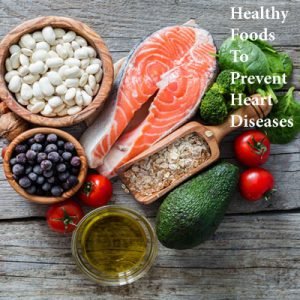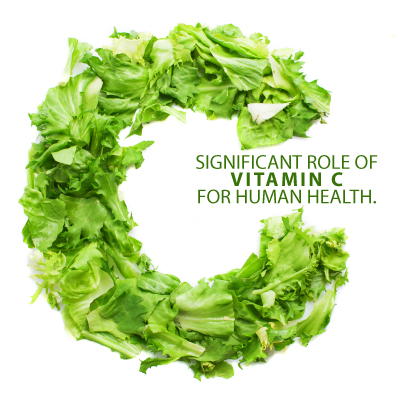Heart disease is one of the leading causes of deaths in the United States of America. Every year heart disease claims about 17 .7 million deaths around the world that is 31 percent of all deaths and it is so alarming to know this figure. In modern age, food habit, comfortable way of living, lack of physical activity, alcohol consumption and smoking tobacco are the leading causes of heart disease when heart healthy foods are ignored from our plate.
Heart is important factor for overall health for human body. When it stops, more functions will be failed in the human body. If it performs well, other parts are also going to be active and will be at no risk. Some poor diet and unexpected metabolism, change in the function and external functions like smoking, polluting air, unlucky genes may disrupt heart’s normal functions. Disruption of homeostatic function cause to heart attack and stroke. This complication is on the rise in the U.S as well as all over the world.
There is plaque named as atherosclerosis which may be grown and block blood flow in the artery this plaque may cause blood clot in the blood vessel and causes blockage in the artery. Cholesterol level in high block in the arteries which slow down the blood movement and blood vessel then heart attack or stroke may happen. To be focused on heart health, young age is the most important time to follow healthy practice like healthy diet for cardiovascular health.
Avocados: Compared to other fruits, Avocados has little amount of sugar and this is one of the fruits that lower bad cholesterol and blood pressure. Health researchers suggest that adding an avocado with your daily diet will surly reduce the risk of cardiovascular disease like heart attack and stroke. At present, obesity and intake of salt with processed foods is significantly increasing as the tasty foods for the people and the risk of heart attack related deaths has also been common among the people. So if you are conscious of your heart healthy foods, you need to add this great nutrients fruits in your daily diet.
Walnuts: Heart attack has been one of the reasons for early death and it is increasing day by day. Taking walnuts may reduce the risk of facing cardiovascular disease. Nutrition from walnuts like oil are so beneficial to blood vessel and remove blockage in the blood flow. It also cleans toxic elements from blood, improve cholesterol level and prevents blood clotting by protecting inflammation. According to British journal of Nutrition, taking walnuts 4 times in a week reduces the risk of coronary heart disease.
Walnuts are also effective to beat type 2 diabetes which is linked with blood sugar control or insulin metabolism. Walnuts have more exciting benefits for the treatment of type 2 diabetes. It controls blood flow and decreases cholesterol level. 1-2 ounces’ intake of walnuts have significant result to control diabetes.
Almonds: Almonds have phytochemicals like chemical based on plants. Chemicals from plant are important and powerful antioxidants to fight against cardiovascular and heart disease. This antioxidant like flavonoids reduce inflammation and keep heart healthy to make sure preventing any heart attack or stroke. Almonds also are helpful in preventing forming any kind of damage in the artery walls and removes harmful plaque buildup. It is one of the heart healthy foods for heart health.
Apple: In modern age, we are getting different varied foods from different culture, country and according to our taste. Sometimes we take these foods subconsciously and these foods may contain high salt or these may be high sugar sweetened which leads to the risk of cardio vascular disease like hypertension heart attack, stroke, coronary artery disease through increasing bad cholesterol in our blood. So from young to old are high risk at cardio vascular risk.
If you want to be cardio protective so you need to eat apple to make a strong wall which is to prevent oxidative damage and lipid metabolism. The most protective effect of apple health benefit is to increase antioxidants enzymes and overall antioxidant potential in plasma and reduce oxidation. It is highly heart healthy foods for human being to take apple every day.
Banana: Banana is full of potassium. It is one of the essential minerals which is required by human body. It regulates your blood pressure and your risk of facing heart attack or stroke will be reduced by 20% if you eat this amazing fruit daily. Potassium also keeps blood vessel properly and it is one of the heart healthy foods.
Strawberries: Strawberries are kinds of fruits that play effective medicinal role for our health. Hypertension is seen among the people due to different reasons and it is also a reason for early mortality. Strawberries are great fruits which control and lower high blood pressure. Even different health expert suggests that if you have only one cup of strawberries every week, you are not going to face high blood pressure. So strawberries can never be overlooked for your better health.
Dark Leafy vegetables: Green salads, Spinach, Kale, Swiss Chard, Collard are best vegetables for heart health and full of vitamins like A, C, E and K. They also contain antioxidants which work as defense to control free radicals in the human body. Free radicals will be unstable and reactive to disrupt any other molecules biologically relevant for our body. However, these antioxidants defend oxidative stress. Potassium, magnesium and calcium are considered as smooth regulation of blood pressure in helping patients with Type 2 diabetes who are at high risk for heart disease.
Sodium’s role in blood pressure is tremendous and potassium can play effective role in reducing sodium level on blood pressure. The walls of blood vessels can be relaxed if magnesium and needed amount of calcium is taken. However Dark leafy vegetables are great sources of those vitamins and minerals which are required to keep heart healthy and prevent heart diseases.
Carrots: when you are eating high fat contained foods, you are facing the risk of heart disease. The most probable reason of heart disease is high blood pressure. Carrots are from the root classification and foods from roots are the most effective ways to reduce the risk of heart disease. So the health benefits of carrots to is make your heart healthy and safe. Even different studies have found that per day intake of carrots has significant result of not having heart disease.
Carrots are rich in antioxidants and carrots are one of the foods that so many roles in treating cardiovascular disease. Study and research always suggest to take some foods of different colors like green, yellow, red, white, purple and orange. It is very interesting that those fruits and vegetables are in orange or yellow color has benefits in treating cardiovascular disease. Health benefits of carrots are tested to beat heart disease. Those who can take carrots on daily basis has a benefit of reducing the risk of heart disease by 32 percent.
Tomato: At present people have been facing common problem hypertension or another name is high blood pressure due to choice on high calories foods, sugar sweetened foods, high fat induced foods and many more which are the responsible for high blood pressure and this risk is increasing tremendously which also leads to early death from all age. It has potassium which is the most important substance for blood and it reduces stress in the blood vessel and arteries. For this blood is circulated easily and prevents the risk of heart. Smoking and heart disease is interlinked and intake of tomato on daily basis is going to beat heart disease of smokers.
Garlic: Garlic has strong effects in reducing cardiovascular disease. It lowers blood pressure in preventing serum cholesterol, inhibition of platelet aggregation and atherosclerosis which are demonstrated as the cardiovascular effects. Aged garlic has been suggested by research as lowering systolic blood pressure who have already uncontrolled hypertension. So it is clear that garlic should be considered as medicine of lowering cholesterol and beneficial for us.
For better living without heart disease, foods to avoid cardiovascular disease should be taken into consideration and these foods are salt enhanced, sugar sweetened and processed foods with high fats. Even, nutritional plan and lifestyle plan for a patient with heart disease can be defensive way to ensure good heart health. So there is no way to overlook nutrition and heart health to reduce the tolls of death around the world.






